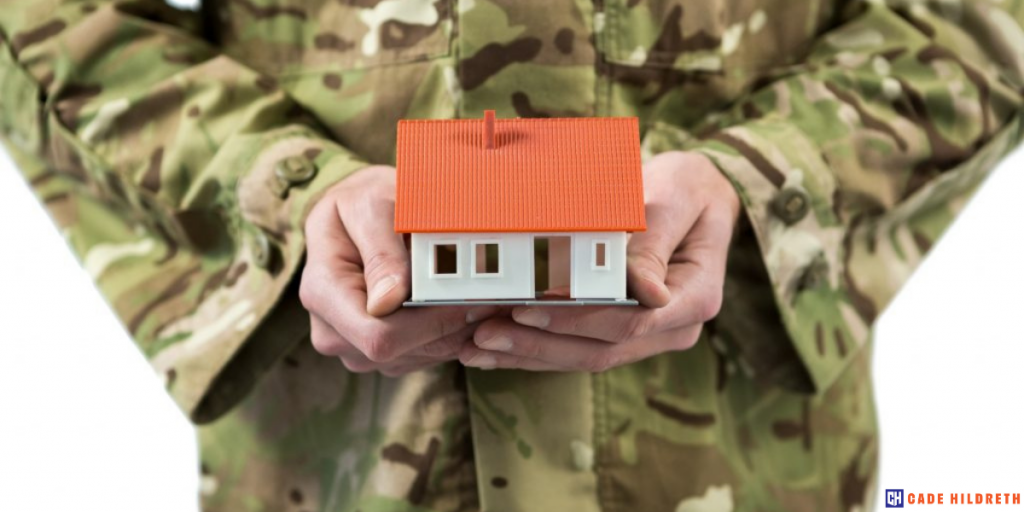|
|
As a United States veteran, service member, or military family, you may be eligible for a VA loan. While you can get the loan from a private lender or bank, the loan is backed by the Department of Veterans Affairs. VA loans have been an incredible resource for military families for decades.
If you’re considering a VA loan for your home purchase, this round-up has everything you need to know. From the benefits to the loan process, here’s your go-to guide to VA loans.
What Is a VA Loan?
The Department of Veterans Affairs aims to help active military service members, veterans, as well as eligible family members, and surviving spouses own a home. VA loan benefits also include programs to assist with home building and repairs.
You can apply for a VA loan through almost any traditional bank or mortgage lender. Because the VA will guarantee a portion of your loan, this will give you the advantage of better loan terms. Your lender may be able to provide you with better interest rates and more favorable conditions.
Eligibility Criteria
To qualify for a VA loan, you must first be a veteran, active military service member, surviving spouse, or qualifying family member. Below are a few additional criteria you’ll need to meet.
- A credit score of at least 620
- A certificate of entitlement showing you served enough time to be eligible for a VA loan
- A debt-to-income ratio below 43%
- Prove stable employment or income
- Your home must be owner-occupied
Depending on the years you served, the duration of the required service varies. If you served in the Korean War, for example, you must have served for 90 days.
If you served after 1980, you must have served for 24 consecutive months or have been discharged for hardship, reduction of force, or a disability. If you are currently on active duty, you must have served at least 90 consecutive days.
Military spouses, surviving spouses, and other military personnel may also be eligible for a VA loan. You can check your specific service requirements here to confirm your eligibility.
Calculator and Rates
One of the many benefits of a VA loan is that you aren’t required to put any money down. While it’s always encouraged to put money down if you’re able, it’s nice to have the option if you prefer to keep the cash for home repairs or other expenses. With a traditional FHA loan, you are typically required to at least put 3.5% down.
With a VA loan, you also aren’t required to pay any mortgage insurance. With other loans, if you don’t put 20% down, you will usually need to pay private mortgage insurance or PMI. On a $200,000 home, 20% would be $40,000. VA loans won’t come with insurance payments because they are backed by the U.S. government.
In terms of your loan calculations and budget, these are important factors to note. You may have a little more flexibility to make repairs if you know that you only want to put 10% down instead of 20%, for example. This can also help you enter the housing market sooner if you don’t have as much saved as you would like.
In terms of VA loan rates, you will often be offered more flexible terms. With a lower interest rate, you will pay down your principal faster. If your credit is less than perfect, this loan can be a great opportunity to boost your score. Credit requirements will often be looser for a VA loan.
The Process
The process to apply for a VA loan is similar to a traditional mortgage loan. You’ll first and foremost always want to work on saving for a down payment, paying off your debt, and getting a hold of your finances. The better shape your finances are in, the smoother the mortgage process will be for you.
You’ll then want to determine your budget. You can work with your mortgage broker to determine how much you are pre-qualified for. With VA loan, you’ll see lower interest rates, no down payment requirements, and looser credit restrictions. These benefits will help your money stretch further.
Once you have your pre-qualification, you can start shopping for your home. With a VA loan, you will make an offer and pay your earnest money if your offer is accepted. From there, the process is similar to a traditional mortgage.
You and the seller will negotiate things such as closing costs and your closing date. Typically, your closing will be anywhere from 30 to 45 days after your offer is accepted.
Limits
In terms of how much you can borrow, the VA will not limit this amount. The limit to what you can borrow will depend on the real estate market and how much you qualify for.
There may be limits to how much the government will back, however. This will depend on the county you live in as well as your entitlement. Entitlements and government backing only come into consideration if you default on your home.
Is a VA Loan Right for You?
If you’re a veteran or military service member, a VA loan is a great option. When it comes to down payments, terms, and interest rates, it can help make homeownership attainable.
You and your mortgage lender can help determine if this loan is the right fit for you and your family. With a VA loan, the mortgage process can be easier and more flexible than with a traditional loan.
